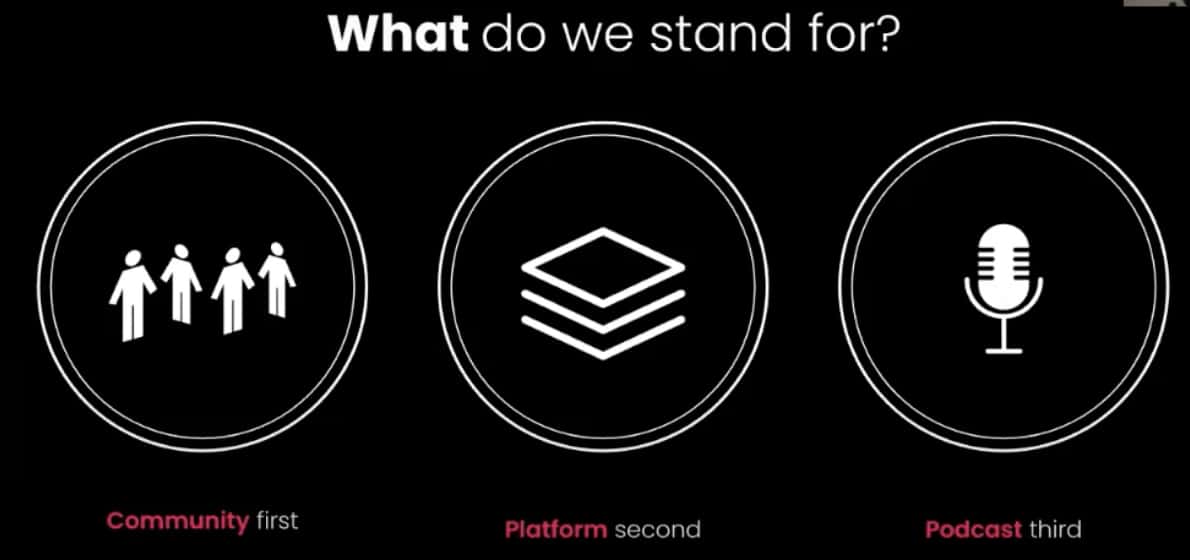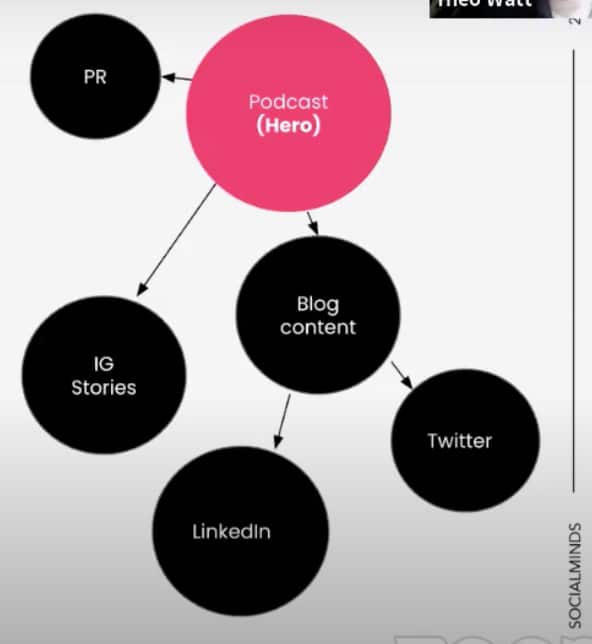Eve Young and Theo Watt are the co-hosts of Social Minds, an industry-leading social media lead podcast.
They’ve been going for three years now, and as a listener, I’ve been consistently impressed by the quality of guests and insight they’ve been able to deliver to their audience.
Their reward is an audience willing to hear their message, relationships for their agency, and being placed at the heart of the conversation around social. So how do they do it?
Let’s start with a mindset
Even though Eve and Theo ‘do’ a social media podcast, attitude and ethos have always been so much more important.
They recognised that much of the industry chatter is laced with buzzwords and hard to access the content. For them – it’s about making the content accessible, with real actionable insights: either through case studies or by hearing from industry experts.
Eve sums this up as community first, a platform for experts second, and lastly, it’s about the podcast. For anyone starting a podcast – this speaks to knowing why you’re doing and not getting too wrapped up in the idea of it being a podcast, but instead a way to convey a view or information into the world.

So why do podcasts fail?
Two reasons.
Impatience, and not having a compelling hook. Let’s look into those.
Personally, I love John Espirian’s outlook of having a 30-month mindset when it comes to building something special. Theo mentioned that it was around 50 episodes deep that he felt like it really started to click for Social Minds.
So far as the hook goes – Eve recommends finding a space that other people aren’t covering already – or at least finding a point a view that is different in the industry. In the case of Social Minds, they had first movers advantage on Social Media. However, you can explore the Apple Podcasts and Chartable charts to research what is working, what isn’t, and what is out there already.
So you’re ready to get going with your podcast?
Launch with a bank of episodes! Theo recommends recording 5 episodes upfront – Eve points to an experiment run by Chris Williamson of The Modern Wisdom podcast where he shifted his podcast regularity from one to three episodes per week and saw his podcast shoot up the charts.
Also important is your format – what does your podcast look and feel like, how long is it? Do you have guests?
It’s not good enough to pick up your mic and just start talking, unless you’re a celebrity or influencer who people already love. When it comes to picking your format, start with sustainability: can you keep up your format? Is there room for more than one format? For example, Social Minds have both interview style and short news style chats.
Ultimately Eve points to podcasting success to be a slow burn.
How do you find podcast guests?
Eve and Theo point to being picky with guests. Default to the authenticity and values of your podcast – rather than big names. Theo provides the reassuring point that there are plenty of guests out there who are willing to get involved who will suit you and your audience.
Eve & Theo use Linkedin for outreach. It’s classic relationship building – nothing sophisticated, but it makes sense. Secondly, they always ask their best guests who might be a good person to speak on the podcasts – meaning they benefit from an immediate broadening of their network, taking the podcast in directions even Eve & Theo didn’t expect themselves.
How can you be a great podcast host?
People respond to people. They don’t respond to a brand, so always take the time to work on improving being a great host.
Eve has a few rules:
- Know when to speak, and when to shut up
- Be in two places at once: it’s your job to be the voice of the audience, not just yourself. For example, if a guest uses a bit of jargon the audience might not understand – it’s up to you to take one for the team and ask the ‘stupid questions’
- Get comfortable with discomfort: be okay with interrupting people. Challenge perceptions. Interrogate like a journalist.
And finally – how to market your podcast
60 – 70% of a podcast’s success comes down to the marketing of the podcast. If no-one hears the podcast: the sweating you’ve done over audio quality and guest curation won’t matter.
More than that – don’t just distribute your podcast, make it a pillar of your content marketing. Theo now sees the podcasts they record as simply a hub for the rest of their content strategy – not just the podcast in itself.
Theo and Eve covered this, and so much more in our full episode, found above, or on The Marketing Meetup Podcast :).